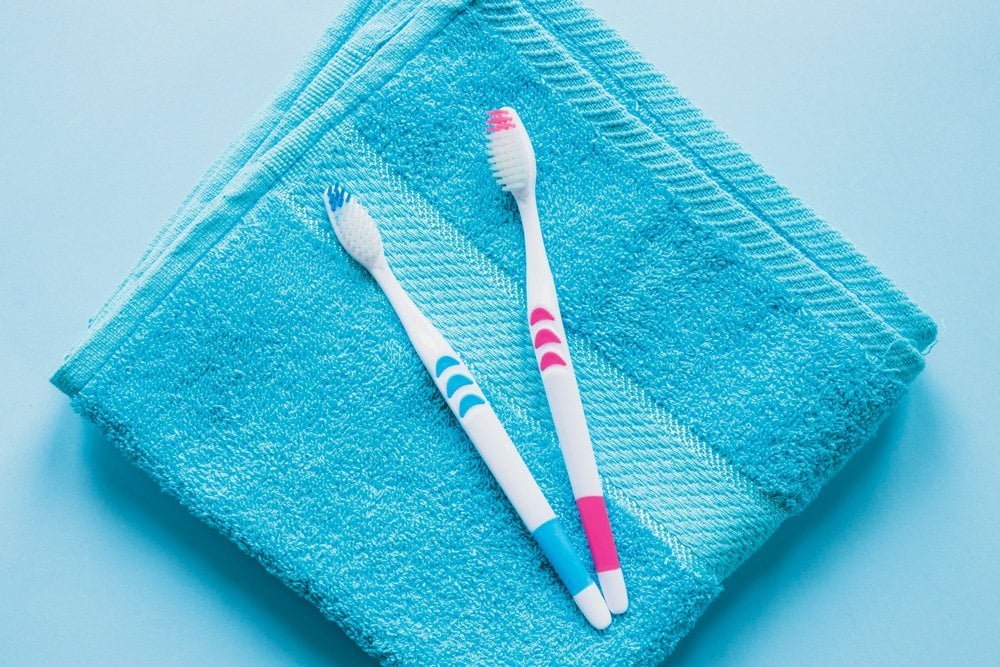- Sponsored Content
 Children experience common dental problems similar to adults, but because of a child’s physical, physiological, and even psychological differences, such issues require a keen professional eye to notice them. When it comes to areas of concern, your child’s dentist can tailor specific tips and provide recommendations based on your child’s age and stage of development.
Children experience common dental problems similar to adults, but because of a child’s physical, physiological, and even psychological differences, such issues require a keen professional eye to notice them. When it comes to areas of concern, your child’s dentist can tailor specific tips and provide recommendations based on your child’s age and stage of development.
Silent signs
A foundation of good oral health in childhood paves the way for a lifetime of functional and beautiful teeth. Early signs of poor oral health are often missed as they are usually painless. This is true for adults but even more so for kids, especially the little ones who will not keep still for you to inspect their mouth! We’ve met countless parents who bring their children to us for routine check-ups and are shocked when we find numerous cavities. Here’s some red flags to look out for:
- Halitosis (bad breath) that persists after brushing
- Red and/or puffy gums, which may bleed when brushing along the gumline
- Colour changes on the surfaces of the teeth – white, yellow, brown, or dark spots/streaks that cannot be brushed off
Teeth malalignment
Orthodontic (related to the alignment of teeth) and orthognathic (related to the jaws) problems can lead to dental issues including:
- A tendency to trap food and plaque, and difficulty in brushing and flossing
- Poor aesthetics and a detrimental effect on self-esteem
- Poor chewing ability
- The uneven wearing down of teeth
- Effects on speech
- Asymmetric growth
These problems have a range of types and severity which can depend on your child’s stage of personal dental development. A paediatric dentist or orthodontist can recommend treatment options at the optimal age.
“Traumatic dental injuries in children make up 5% of all injuries”
Dental trauma
Traumatic dental injuries in children and young adults make up 5% of all injuries, therefore a well-fitted mouthguard is highly recommended if your child plays contact sports. In the case of a tooth avulsion (where the entire tooth gets knocked out of its socket and you can see the entire tooth, crown and root), it’s essential to reimplant it as soon as possible, if this is the child’s permanent tooth.
Gently hold the tooth by its crown (the white part) and avoid handling its root (the long, yellow portion). If visibly soiled, rinse it gently using milk, saline, or the child’s saliva. Insert the tooth back into its socket and have the child bite on a gauze or handkerchief to hold it in place.
If you cannot reimplant the tooth, store it immediately in a solution such as milk, Hanks’ Balanced Salt Solution, your child’s saliva, or saline. Seek dental care immediately. If the avulsion involves a milk or baby tooth, refrain from putting it back in the mouth. Doing so can risk further injuring the unerupted permanent tooth in the gum above.
 Tooth tips to live by
Tooth tips to live by
- Toothbrushing should be done at least twice a day with fluoridated toothpaste. Parents should supervise until (a) the child has sufficient fine motor skills to brush by themselves, and (b) the child is motivated to brush well
- Flossing should be done once a day, ideally before brushing
- Food that is bad for your teeth is generally bad for your body, too. Limit “empty calories” from snacks and treats like candy, cookies, and cake, and ensure an intake of well-balanced meals with enough protein and fibre
- Pick a “treat day” or “sweet drinks day” that you and your children can enjoy together. Keep it within one sitting, avoid nibbling/sipping over a long period, and follow it up with toothbrushing or a good gargle with water
- Establish a regular dentist for your child early in life. The American Academy of Paediatric Dentistry (AAPD) recommends the first dental visit should take place when the child’s first tooth erupts or by their first birthday, whichever is earlier. Starting a dental routine now means dental visits become scheduled in and easy, instead of being random, scary appointments
 Dr Pauline Lee has experience in treating children including sedation and GA cases, special needs and medically compromised patients, as well as interceptive orthodontics and trauma. She takes pride in providing a pleasant and positive dental environment where every child can achieve a beautiful, healthy smile.
Dr Pauline Lee has experience in treating children including sedation and GA cases, special needs and medically compromised patients, as well as interceptive orthodontics and trauma. She takes pride in providing a pleasant and positive dental environment where every child can achieve a beautiful, healthy smile.
 To learn more about children’s dental issues or to book an appointment with one of our friendly dentists, contact us at 6733 9882 or www.smilefocus.com.sg
To learn more about children’s dental issues or to book an appointment with one of our friendly dentists, contact us at 6733 9882 or www.smilefocus.com.sg



 Tooth tips to live by
Tooth tips to live by




